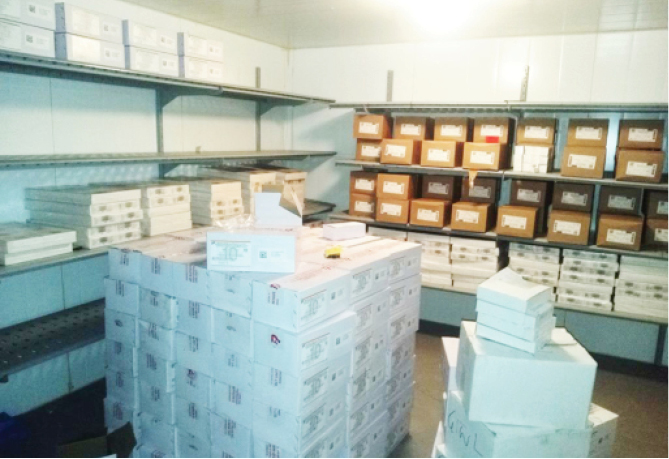How local production of COVID-19 vaccine will save Nigeria
The federal government has reiterated the need to have a home-grown COVID-19 vaccine for its over 200 million population, saying local production of the vaccine would save the country the cost of importation as well as make it easily accessible and affordable. The Minister of state for Health, Dr Senator Olorunnimbe Mamora said that in […]

FILE PHOTO: COVID-19 items
The federal government has reiterated the need to have a home-grown COVID-19 vaccine for its over 200 million population, saying local production of the vaccine would save the country the cost of importation as well as make it easily accessible and affordable.
The Minister of state for Health, Dr Senator Olorunnimbe Mamora said that in order to achieve home-grown COVID-19 vaccines in Nigeria, there is a need to support research institutes. He said this on Monday at the Nigeria institute of medical research (NIMR), Lagos during the commissioning of the next generation sequencing as well as a tour of the projects within the institute.
According to the Minister, “Although there is a vaccine in the country, we will not stop research institutes from working on the one they are researching on. Having our own home-grown vaccine is the ultimate in which case, we don’t have to look to any other country for a vaccine. It is in our own interest that we ensure we get to that point where we can lay claim to our own vaccine.”
Nigeria and 53 other African countries are yet to produce a vaccine for over 1.34 billion people.
The continent is reliant on the vaccine produced from outside the continent.
The Director-General/CEO of NIMR, Babatunde Salako, revealed that the institute has been having a collaboration with the Usmanu Danfodiyo University in Sokoto and the National Veterinary Institute in Jos for robust research on vaccine development in Nigeria.
Prof Salako hinted, “While NIMR is currently using Gibson assembly cloning in developing multi-valent peptide subunit vaccines against SARS-CoV-2 virus, Usmanu Danfodiyo is employing bioinformatics and nano-technology to make DNA vaccines, and National Veterinary, on the other hand, is using reverse genetics in engineering New Castle Virus to express SARS-CoV-2 spike proteins. This is a serious effort to be supported by the government.”
The newly commissioned sequencing machine, he explained, was acquired to serve in the molecular surveillance as well as monitor the variants of SARS-CoV-2 in Nigeria. The machine, he insisted, would prepare the country in the fight against other infectious agents such as Lassa fever virus, Yellow fever, Ebola and other infectious agents characterized by the genetic code.
